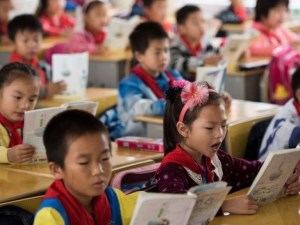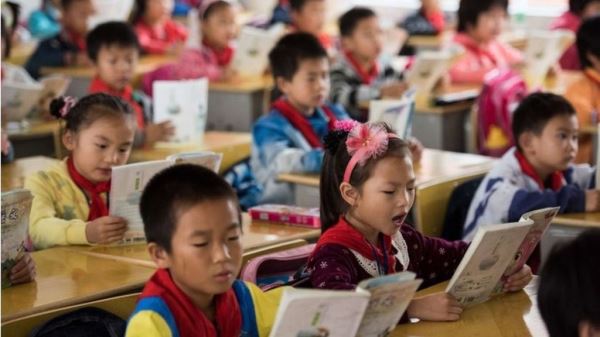China will soon become the first country to use artificial intelligence to help boost education standards.
Under the bold new plan, most of China’s 188 million students will have access to “super teachers” with powerful “brains” capable of answering nearly 500 million questions.
The AI-enabled education program is the brainchild of Zhang Kailei, the founder and chief executive of Shanghai-based startup Master Learner.
The program has been designed to assist teachers like Peter Cao, who has dedicated 16 years of his career to teaching chemistry in a high school in central China’s Anhui province.
Cao is one of 14 million teachers in China who spend 2-3 hours each day grading assignments.
But now with Master Learner, teachers will be able to hand this time-consuming review process to a “super teacher.”
As well as answering the most tested questions in China’s middle schools, the super teacher will score high points in each Gaokao test, China’s life-changing college entrance exam.
Ai powered education platform
The super teacher is an artificial intelligence-powered education platform developed by Master Learner’s 300 engineers, trained using the hundreds of millions of maths, physics and chemistry questions faced by China’s middle school pupils everyday.
“It used to be very difficult to have both efficiency and quality in education. With AI, we can make it happen,” said Zhang, whose company is now valued at more than US$100 million.
The Chinese government has made AI-enabled education a national strategy, a part of an AI development road map that aims to make the country a global centre of AI innovation by 2030, according to a government plan released by China’s State Council in July.
Education has emerged as one of the hottest verticals for the application of AI in China.
According to market research firm IT Juzi, it ranks third after medicine and automobiles among industries that have witnessed the most changes brought on by AI.
Higher quality education
Analysts and business insiders say AI is an inevitable step in the development of education in China.
Zhang’s start-up is one of a growing number of Chinese online education companies that are increasingly looking to AI to upend traditional classrooms.
Through AI they hope to offer a higher quality education and better efficiency in a country where the best education resources and teachers have so far only been accessed by children from well-off families in big cities.
To make sure children in rural areas can also embrace this innovation, China’s Education Ministry has required governments at all levels to spend no less than 8 per cent of their annual funding on digitalisation of education. In 2016, an estimated 300 billion yuan was invested in China on digitalisation.
About 73 million out of the 76 million middle schools in China have access to the internet, according to Master Learner’s Zhang. “This has laid a solid foundation for the take off of AI-enabled education in China,” he said.
Source: South China Morning Post


